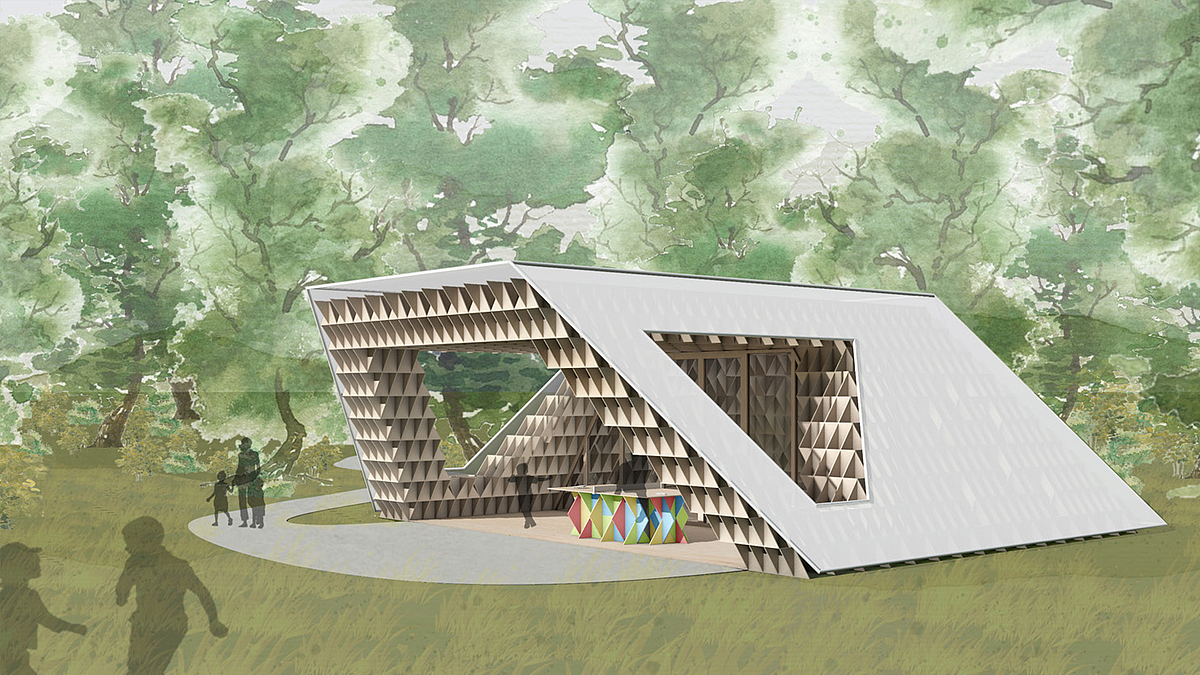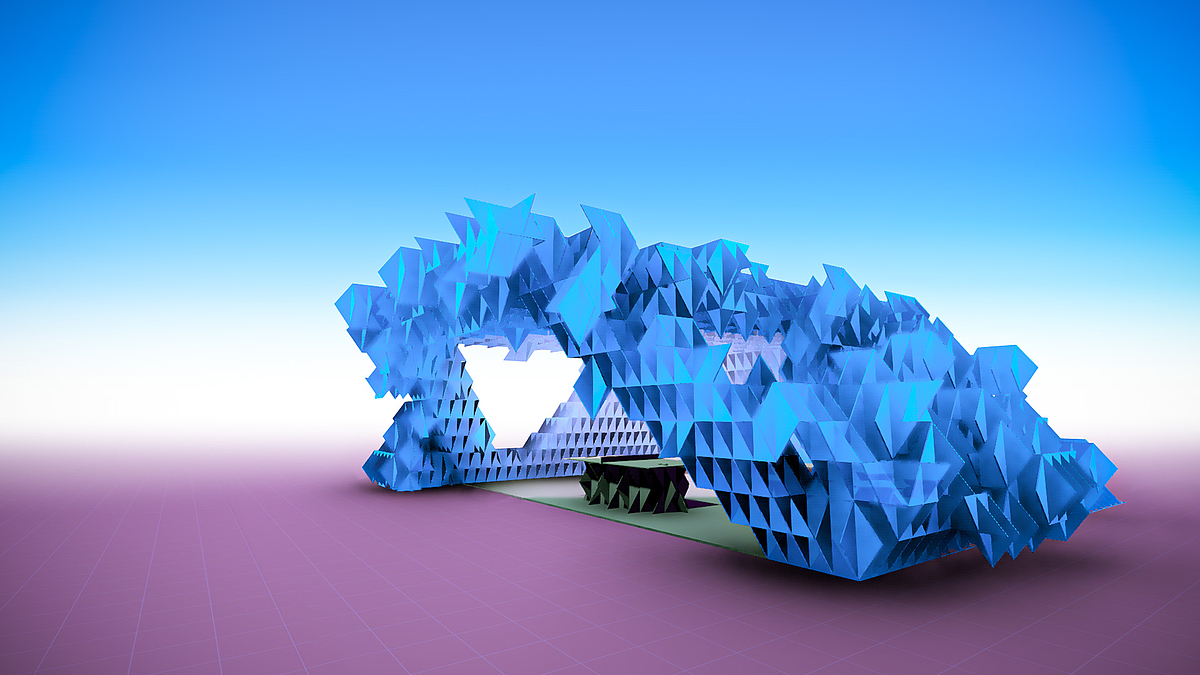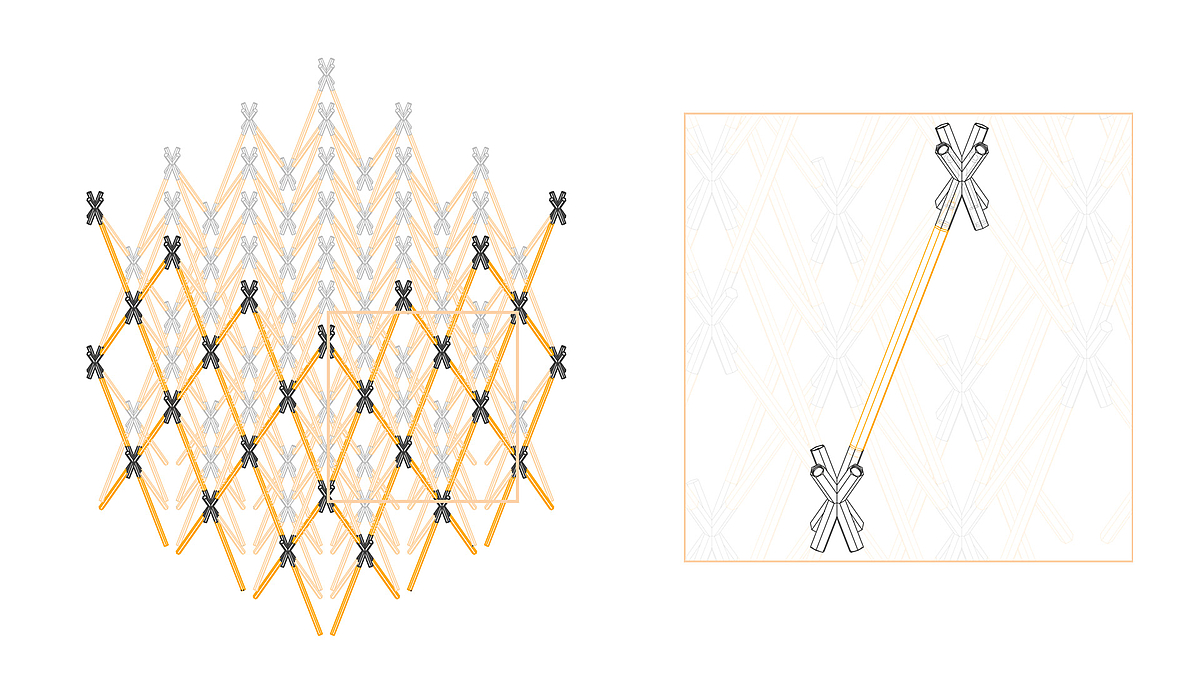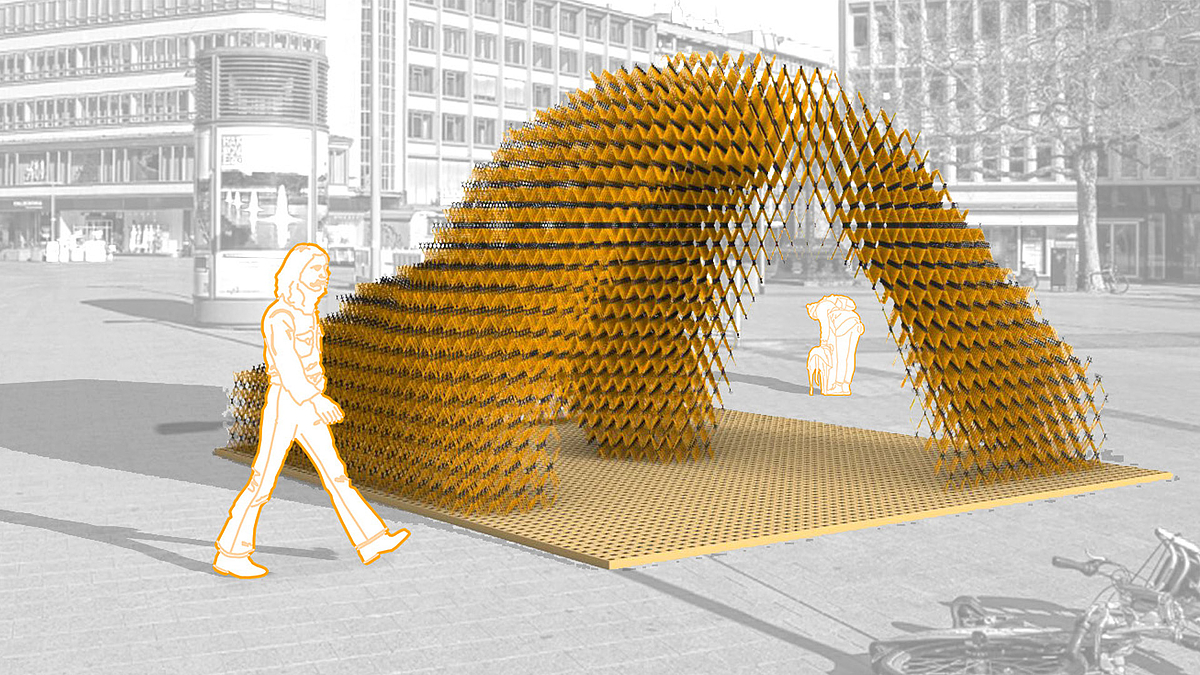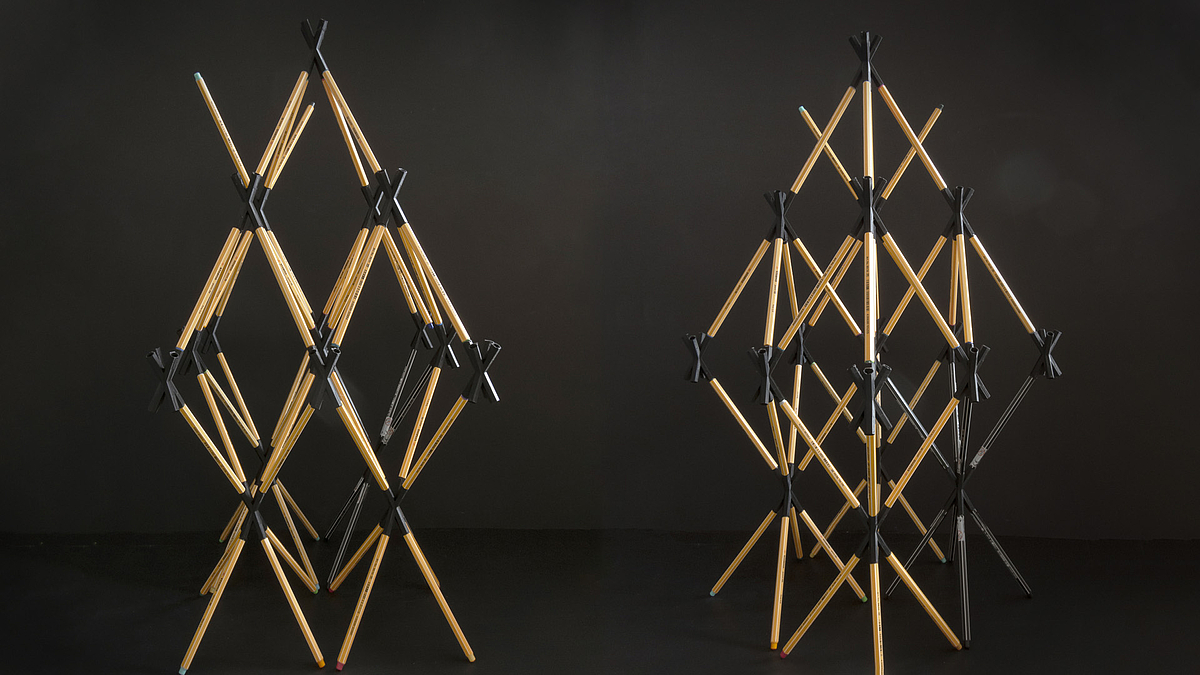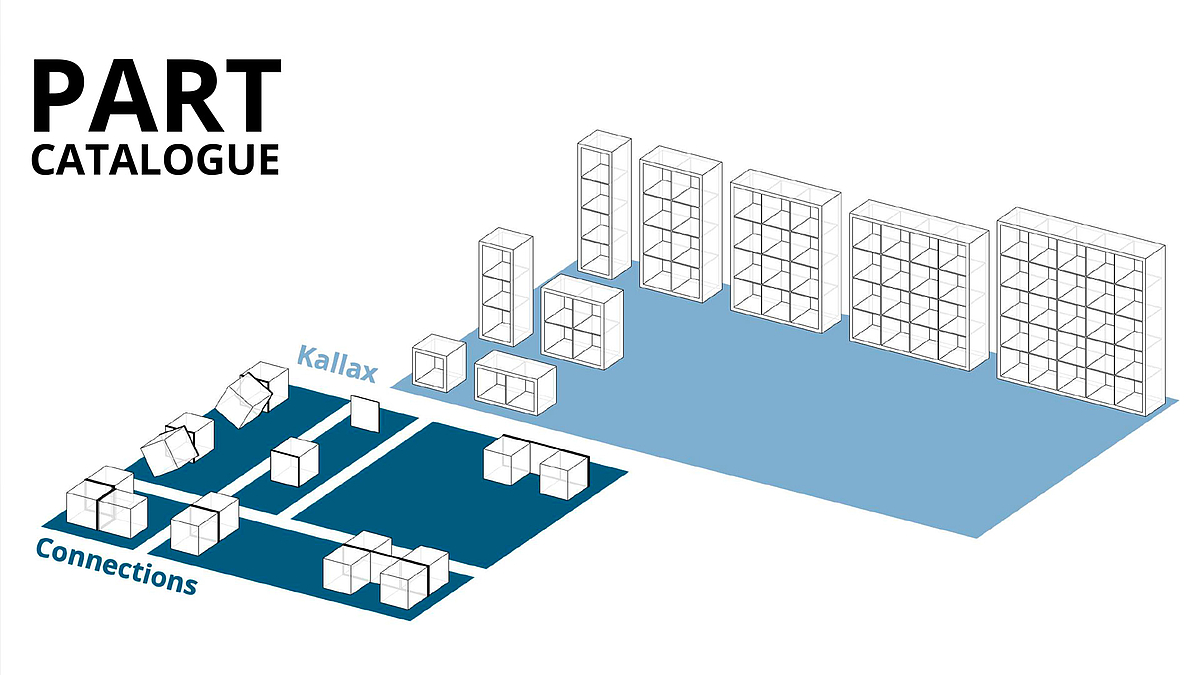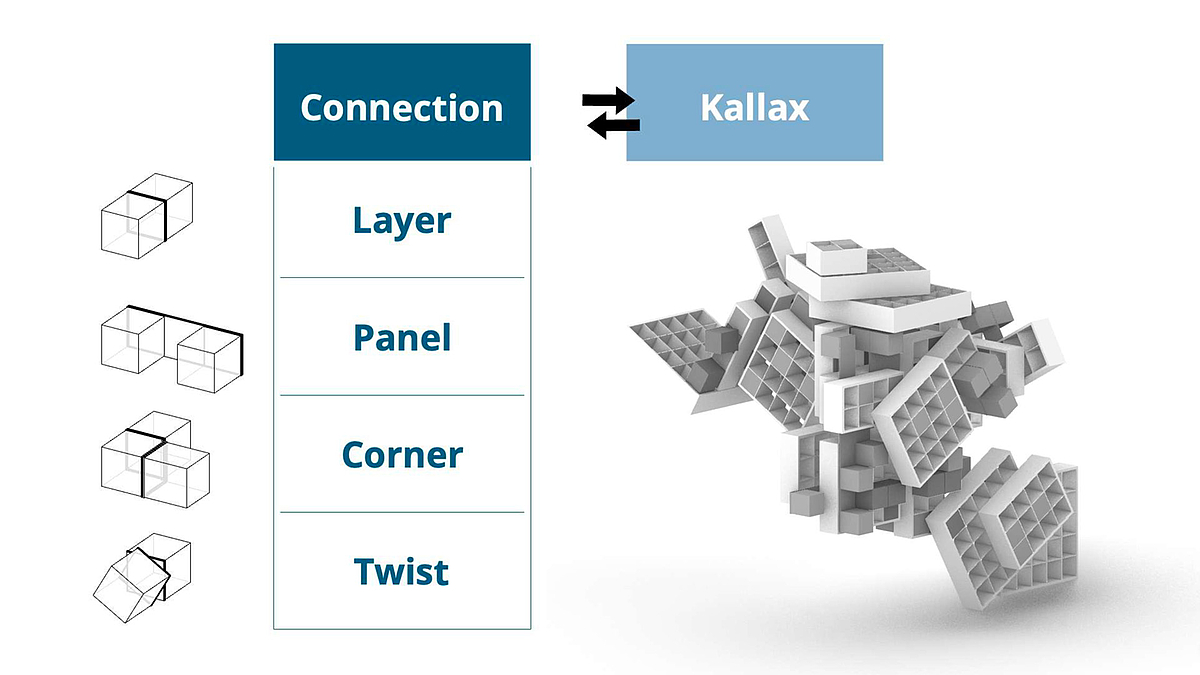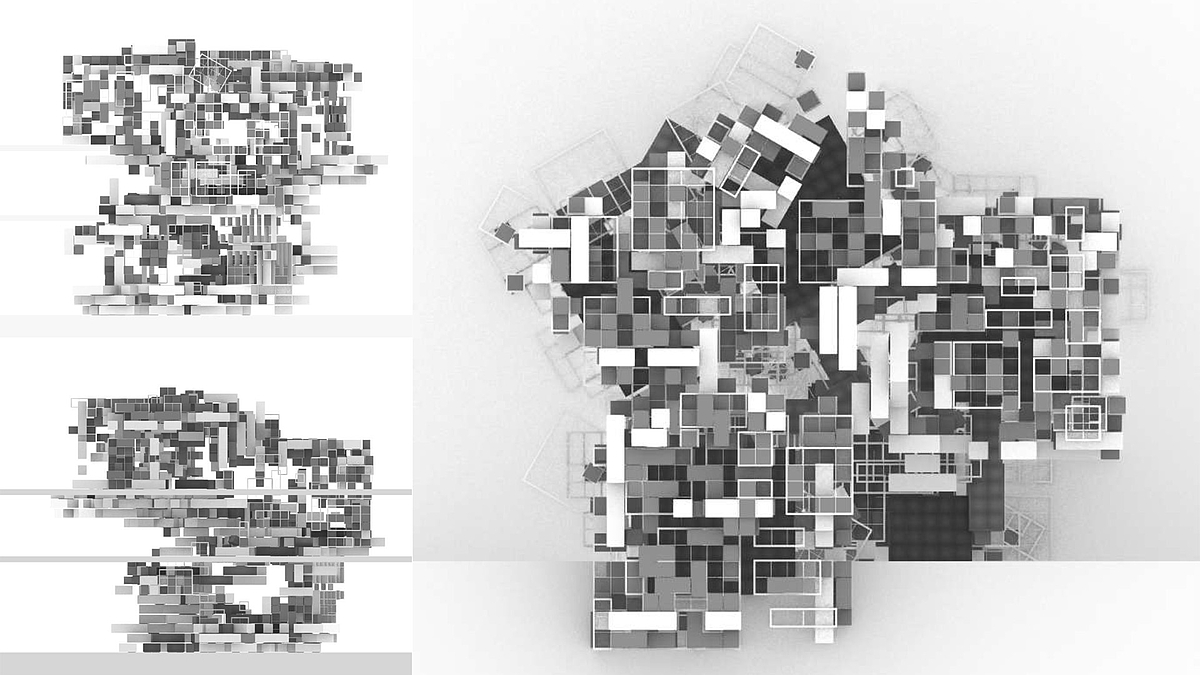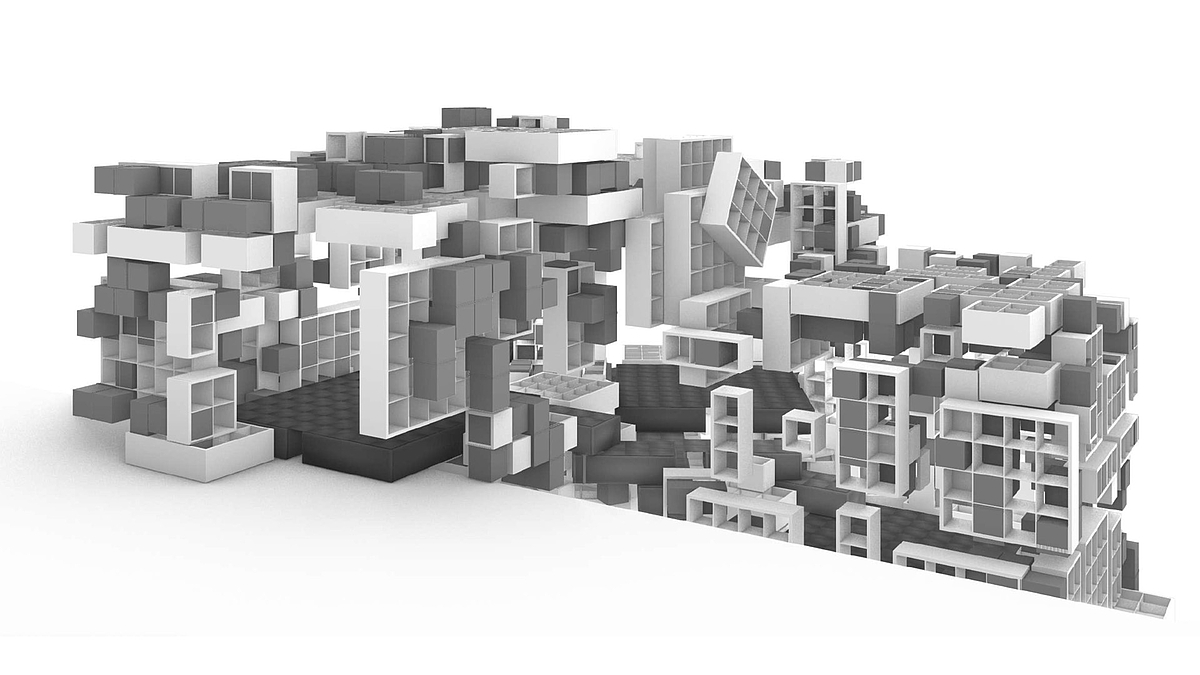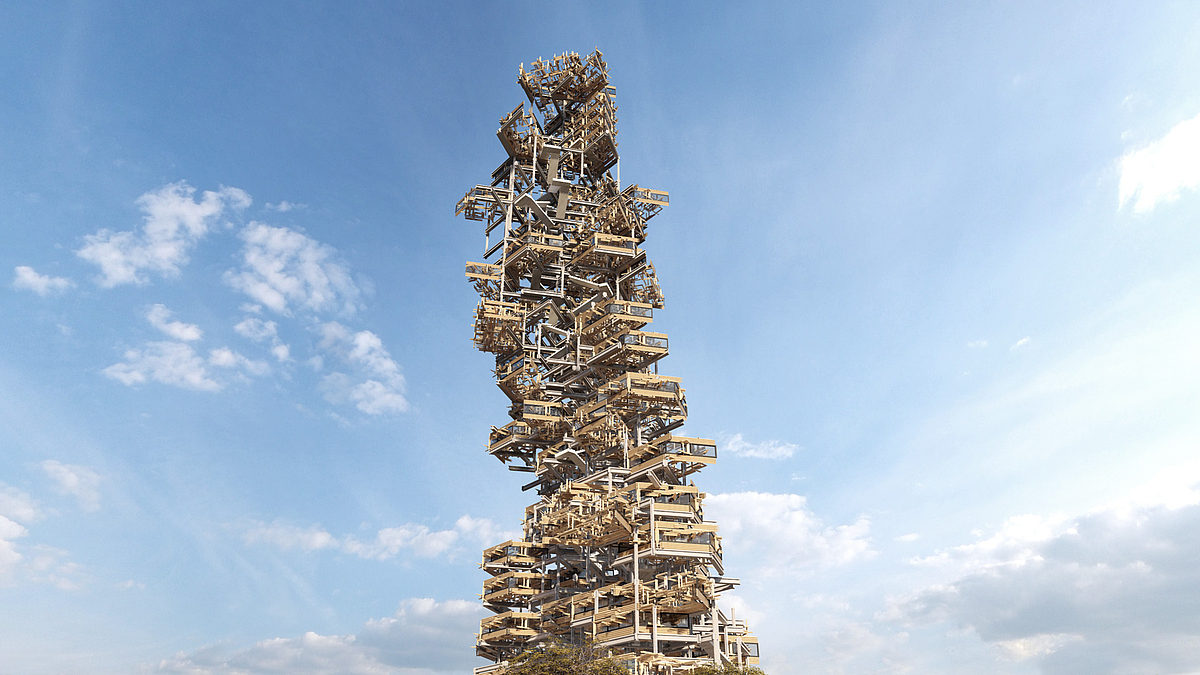Class
Modularity is a recurring concept in architecture; since industrialisation at the latest, it has promised cost-efficient building through a high degree of standardised prefabrication. However, these efficiency gains can hardly be achieved in a single building, but only when applied to a large number of buildings, even entire settlements made of prefabricated elements. Where modularity was used on a massive scale, it usually led to monotony and a lack of creative expression.
Contemporary concepts of modular architecture make use of components that can be combined in many ways – agnostic to their later function in the building. Instead of standardising entire component, systems are being developed through which modules aggregate to form components and tectonic units. The joining of such systems promises scaling efficiency with maximum variety in form and expression.
In the project we will develop such systems, the modules will be digitally manufactured and tested in prototypes. Here we would like to focus on small modules - systems that have a human scale. For this we use different approaches in analogue and digital models. The design with a large number of modules will eventually be done in virtual reality. For this we use Project DisCo, a software that provides easy access to designing in VR.
The result will be designs for building systems as well as tectonic prototypes on a scale of 1:1.
Notes:
The project will take place mostly in online teaching. The use of VR will take place in the university's premises. An appropriate hygiene concept will be developed by the staff. Previous knowledge of digital methods is not required.
Info
Modules:
- MSc. Architektur und Städtebau:
Design Research
Lecturers:
- Jan Philipp Drude
- Andrea Rossi
Schedule:
- First Class: Thursday 15.10.2020
14:00 - 16:00 online
- Block 1: 29.10.2020 14:00 - 18:00 online
- Block 2: 26.11.2020 14:00 - 18:00 VR Lab
- Kolloquium 1: 19.11.2020 14:00 - 18:00 online
- Kolloquium 2: 17.12.2020 14:00 - 18:00 online
- Final Presentation: 28.01.2020 14:00 - 18:00
Further Information on stud.ip

